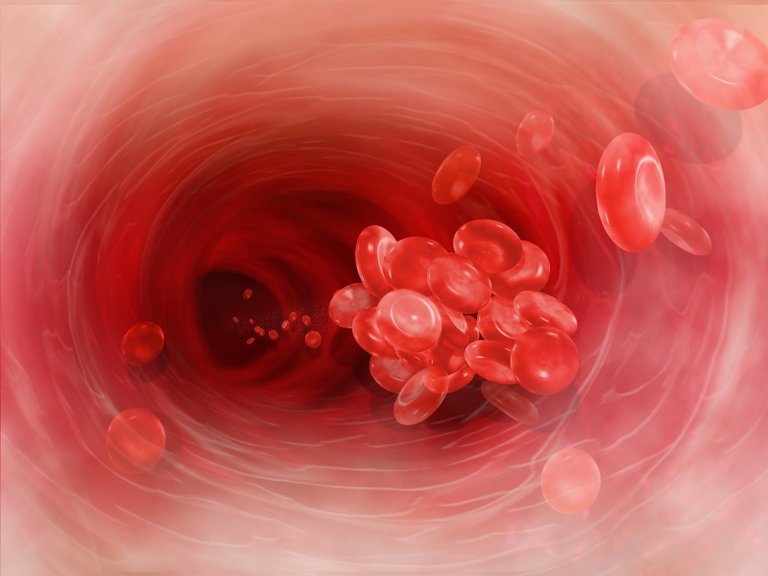The Complex Relationship Between Salt, and Blood Pressure; Myth From Fact
In my post on The Complex Relationship Between Salt, Sodium, and Blood Pressure: Myths, Facts, and Scientific Debates, I looked at sodium and hypertension and what we have been thought about it with respect to blood pressure. In continuation, even if we are going to accept this, how does it happen?
The pathophysiologic mechanism leading to increase in blood pressure value in association with sodium has been debated for the longest of time, so the connection between the two is intricate with no 100% certainty that intake of salt causes increase of BP. There are a few theories about salt in the body with one being the water retention theory.
Sodium is an electrolyte and we know that electrolytes causes a retention of water so is it possible that an increase in sodium leads to an increase in water retention in the body? The kidney only let go of excess water leaving us with a maintained state of water so we don't become dehydrated, and more water in the body means increase blood volume which also mean increased blood pressure but is this theory correct seeing that salt is in the picture?
A group of researchers wrote a paper titled "High dietary sodium chloride consumption may not induce body fluid retention in humans" after carrying out a research in the lab on six healthy men that were nn-hyperthensive and gave them salt increasingly over a 24 day period with the intention getting result and at the end, they found that an increase in sodium didn't lead to increased water retention in the body rather it led to a shift in body water. After this finding, they had to perform another one with 32 healthy men who were not hypertensive, splitting them into 4 groups and feeding them different amount of salt (0.6g, 2.4g, 4.8g, and 6.6g)for a period of 7 days and there was no water retention effect in the entire group.
Fluid can be both intracellular and Extracellular and water outside the cell can be found in different areas of the body including in the vessels (intravascular fluid), and interstitial fluid which is the water that is found within everything in the body. After loading with salt, the intravascular fluid increased while extracellular fluid volume was not affected as there was a shift in fluid from the interstitial fluid into the intravascular fluid. In all, the participants blood pressure was not affected so there was no increase in blood pressure. Blood volume should increase blood pressure but according to the research, it looks like this change is transient as the increase in intravascular volume only stayed for about 1 to 2 hours. According to the study, the blood pressure throughout the study was not affected but this doesn't account for the blood pressure immediately after ingesting the salt.
Another theory is the Guyton theory which says that the kidney is responsible for determining if we undergo high blood pressure or not from excess salt. The kidney is made up of hormones that are responsible for fluid balance, vessel tightening and relaxing, and blood pressure. The theory looks at increased salt to lead to increased water which would balance it out. This will increase the blood volume in the body which will increase blood pressure but from Guyton theory, provided the kidneys are working well consuming either extremely small amount of salt or large amount up to 50 times would not have any alteration in arterial pressure. So the theory says that salt sensitive is determined by how effective or ineffective the kidneys are as the kidney would pee out salt.
While traditional views link high salt intake to increased blood pressure via water retention, recent research challenges this notion. The role of the kidneys and individual physiological responses are critical factors in this complex relationship. Understanding these dynamics helps clarify the ongoing scientific debates and offers a more nuanced perspective on managing sodium intake for blood pressure control.
Reference
https://www.ncbi.nlm.nih.gov/pmc/articles/PMC6770596/
https://pubmed.ncbi.nlm.nih.gov/2063193/
https://www.ahajournals.org/doi/10.1161/HYPERTENSIONAHA.113.01831#R1R
https://journals.physiology.org/doi/full/10.1152/ajprenal.2000.278.4.F585
https://www.ahajournals.org/doi/10.1161/CIRCULATIONAHA.116.024446
https://www.ncbi.nlm.nih.gov/pmc/articles/PMC7318881/
https://nap.nationalacademies.org/read/25353/chapter/13

This is important knowledge.

Thanks for your contribution to the STEMsocial community. Feel free to join us on discord to get to know the rest of us!
Please consider delegating to the @stemsocial account (85% of the curation rewards are returned).
Thanks for including @stemsocial as a beneficiary, which gives you stronger support.
Fascinating! Just got back from the doctors (for my annual check-up) and foudn myself here (researching the link between salt and bp). I also found it curious how the advice I was getting around cholesterol and BMI had shifted away from "don't eat fat" to "don't eat sugar". A lot has changed in the medical profession!
Wow interesting view! Need to be careful though maybe it depends of what body characteristics and genetics we are talking about!
Keep up the good work. 👏🎵
Dear beloved Hive creator,
Coding poet Gudasol here to support you sharing your art + life on Hive.
As a fellow creator, I know how hard it is to get the word out there.
I built cXc.world to help creators like us get more support from the blockchain community + beyond.
Share your music on cXc.world, and copy the Markdown for a easy post includes embedded players for Spotify, Youtube, Soundcloud.
That way, you can earn HIVE + stack streams on centralized platforms, as they do still matter.
Not a music creator? No problem. You can still use cXc.world to find + share music you love.
What's next?
Preview the next evolution of cXc, Tetra.earth.
Expose local music from your area!
We're helping grassroots musicians, and you can too by adding their music (no sign up or WAX account required).
Join our community 🐬
Find fellow music lovers in cXc's Discord
Bad news: Saying see you later to Hive! 👋
We didn't get the needed support to continue cXc.world on Hive, as our DHF proposal lacked votes, but [Good News Everyone] cXc.world will add a Markdown copy button, allowing you to easily share your music + music you find on Hive.
For now, we're on WAX, with tools you can use to mint your own Music/Media NFT collection.
Curious about the future of Earth + ET relations? New economic systems?
Find more apps + art from Gudasol
Want to build tools like I used to share this?
I'd love to show you some tips on AI Code generation